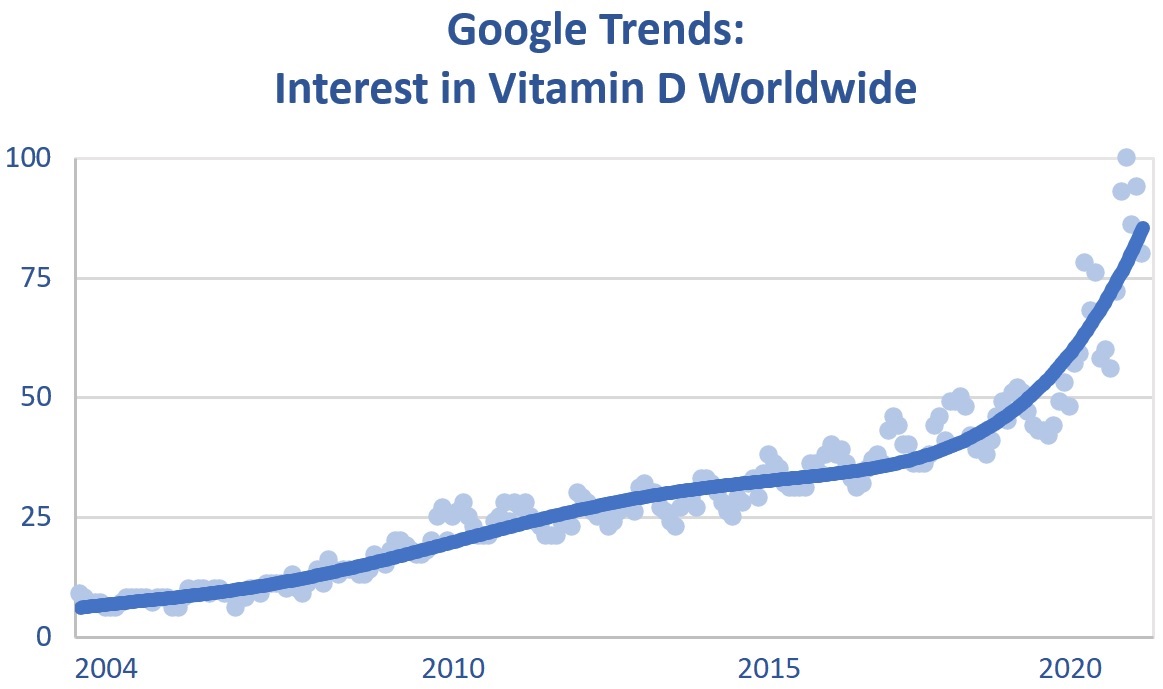
Do Retractions Shake the Cult of Vitamin D?
 We are learning in so many ways that it’s hard to shake a cult. It might be a cult of personality or a cult around a theory. Right now, one that seems unshakable is the cult of vitamin D. With a frequency that seems daily, we see new studies proclaiming that vitamin D levels predict how well a person will fare with COVID-19. Of course, these are correlations that prove nothing about the effectiveness of vitamin D for preventing bad outcomes with COVID-19.
We are learning in so many ways that it’s hard to shake a cult. It might be a cult of personality or a cult around a theory. Right now, one that seems unshakable is the cult of vitamin D. With a frequency that seems daily, we see new studies proclaiming that vitamin D levels predict how well a person will fare with COVID-19. Of course, these are correlations that prove nothing about the effectiveness of vitamin D for preventing bad outcomes with COVID-19.
Unfortunately, well-controlled studies don’t tend to find a benefit. Or problems crop up with a promising study that leads to its withdrawal from publication. Do these failures shake the true believers? Not likely.
A Preprint Goes Viral
As a case in point, Xavier Nogués et al published a study titled “Calcifediol Treatment and COVID-19-Related Outcomes” on the Lancet preprint server. Preprint means that the study has not gone through peer review. Without the constraints of peer review, the authors made a bold claim:
“In patients hospitalized with COVID-19, calcifediol treatment at the time of hospitalization significantly reduced ICU admission and mortality.”
Perhaps in part because there’s a vocal cult of vitamin D, a British politician jumped on these findings via Twitter. “This is a very important study…cheap and very safe therapy…will save thousands of lives, ” he wrote. His tweets got 25,600 likes and 10,900 retweets. The cult loved it. When we wrote about a peer-reviewed study published by JAMA that found no effect for vitamin D, angry fans sent us this paper to refute the finding.
Then It Goes Down
But here’s the thing about a preprint server. Peers bring a critical eye to the methods and the findings when a highly visible study goes up. And the peer reviews were harsh. They found problems with the claims that the study was randomized. It did not appear to be well-controlled. There was no blinding, nor was there a placebo control.
Ultimately, Lancet removed this study from its preprint server, citing concerns and an investigation. But the fan club keeps it alive, posting it on a site called c19vitamind.com.
The Bottom Line
Vitamin D is necessary for good health. So there’s nothing wrong with taking a modest dose (4,000 units daily or less) to ensure you get enough of it. But too much of a good thing can be a bad thing, so larger doses are not advisable without a specific indication.
A new editorial in the BMJ makes it clear enough that COVID-19 is not one of those indications. “Benefits are possible but evidence is sparse, indirect, and inconclusive,” write Karani Vimaleswaran, Nita Forouhi, and Kamlesh Khunti.
The cult of vitamin D needs to get a grip on reality. Calcifediol is useful, but not magical.
Click here for more about the Nogués preprint and here for the BMJ editorial.
Le Culte, painting by Louis Soutter / WikiArt
Subscribe by email to follow the accumulating evidence and observations that shape our view of health, obesity, and policy.
March 9, 2021
